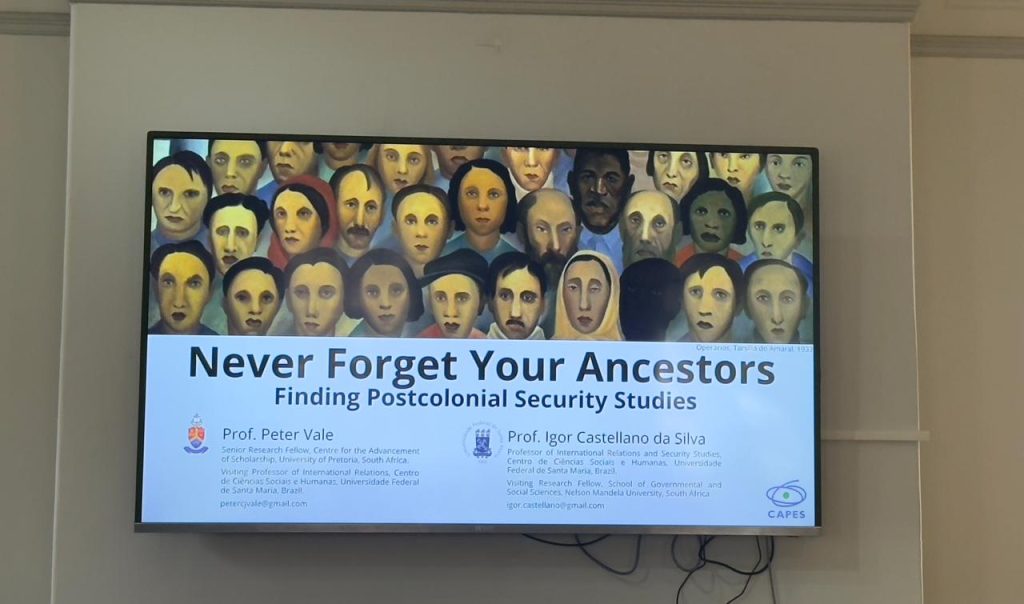
7 October 2025
Never Forget Your Ancestors: Finding Post-Colonial Security Studies Presented by Professor Peter Vale and Professor Igor Castellano da Silva
On 9 September 2025, Professor Peter Vale (University of Pretoria) and Professor Igor Castellano da Silva (Nelson Mandela University) presented a seminar titled “Never Forget Your Ancestors: Finding Post-Colonial Security Studies” at the Centre for the Advancement of Scholarship (CAS), University of Pretoria.
The speakers challenged dominant narratives in Security Studies by showing how the field’s Eurocentric focus has pushed aside Southern perspectives and experiences. By ignoring its intellectual and cultural roots, Security Studies has lost clarity and relevance. The speakers suggested a postcolonial approach that recognises and values informal and marginalised knowledge, such as cultural symbols, artefacts, and historical figures. Through a careful analysis of literature in Security Studies, Prof Castellano and Prof Vale found spatial and temporal gaps that have influenced the growth of Security Studies. They asserted that these gaps have led to a field dominated by white, male perspectives and tied to Anglo-American institutions.
To confront this prevailing narrative, they use ideas from critical humanities, like situated knowledge and epistemological foundations, to rethink Security Studies from a postcolonial viewpoint. The speakers provided two examples of liberation movements that have been embraced as symbols of resistance against colonial violence. In South Africa, the figure of Makhanda has been reclaimed through community-led historical reconstruction. In Brazil, the Tambor de Sopapo has been restored as a living archive of memory, identity, and resistance. These cases show how community action can reshape our understanding of security at grass root level, focusing on human dignity and care. Ultimately, Prof Vale and Prof Castellano argue that a postcolonial Security Studies must recognise and value the knowledge and experiences of marginalised communities instead of depending only on dominant Western views. By reclaiming and highlighting these perspectives, the field can develop a more inclusive and nuanced understanding of security that emphasises human dignity and collective autonomy.
